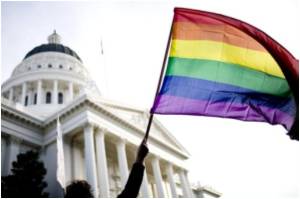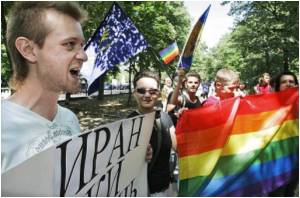With an emphasis on the political as the nation prepares for elections, up to 300,000 spectators were expected to brave the rain to watch Sydney's annual Mardi Gras gay pride parade.

"Generations of Love is really about embracing love across the ages, how far we've come, celebrating what we have achieved and imagining and forging a brighter future," said the event's CEO Michael Rolik.
Some of the original activists, known as the "78ers", will take pride of place at the beginning of the parade, behind the traditional "Dykes on Bikes" motorcade which officially kicks off the colourful, often irreverent march.
Some 10,000 revellers on 115 individual floats will make the journey down Oxford Street, hub of Sydney's gay and lesbian nightlife, in a vibrant show featuring drag queens, political parodies and plenty of sparkle.
There will be an Aboriginal float, surf lifesavers will dance in their trademark briefs and yellow and red caps, and supporters of WikiLeaks will march in solidarity with whistleblower Bradley Manning, a gay US soldier.
Members of Australia's military will be allowed to march in uniform for the first time, and the leader of the nation's left-leaning Greens party, Christine Milne, will take part in the parade alongside her gay son.
Advertisement
The Greens are key allies in Prime Minister Julia Gillard's minority coalition government, which has come under increasing pressure to legalise gay marriage.
Advertisement
Mardi Gras co-chair Siri Kommedahl said the parade -- Sydney's largest event behind the New Year's Eve fireworks, and a huge international tourist drawcard that brings Aus$30 million ($30 million) into the economy -- was as relevant as ever.
"We've come a long way since 1978, when the pioneers of our community took to the streets wearing costumes and carrying placards calling for rights and acceptance," said Kommedahl.
"So now, 35 years on, it's time to remember where we have been, look where we are going and take pride in how far we have come."
Source-AFP









